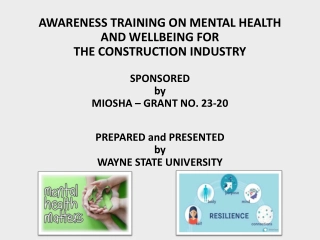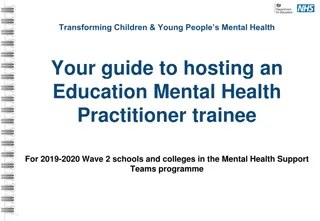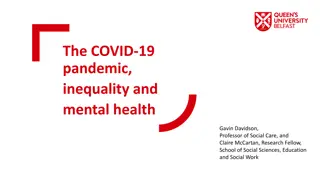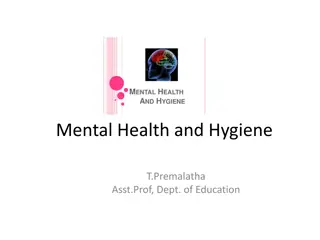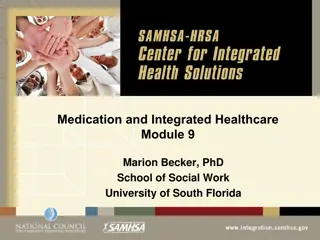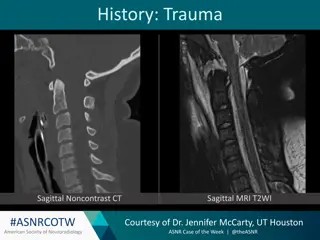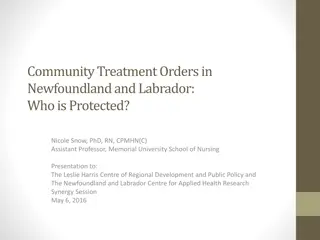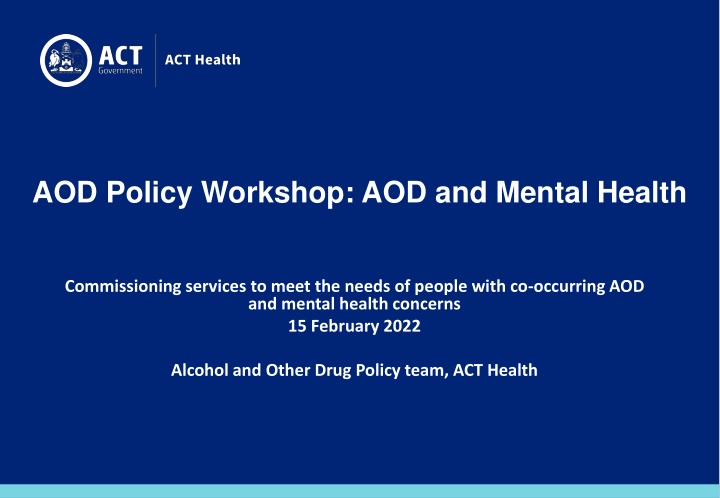
Commissioning Services for Co-occurring AOD and Mental Health Concerns
"Learn about the AOD Policy Workshop focusing on commissioning services for people with co-occurring AOD and mental health concerns. Explore strategies, collaboration, and the development of the next Drug Strategy Action Plan. Provide input on priorities for AOD and mental health in the ACT region."
Download Presentation

Please find below an Image/Link to download the presentation.
The content on the website is provided AS IS for your information and personal use only. It may not be sold, licensed, or shared on other websites without obtaining consent from the author. If you encounter any issues during the download, it is possible that the publisher has removed the file from their server.
You are allowed to download the files provided on this website for personal or commercial use, subject to the condition that they are used lawfully. All files are the property of their respective owners.
The content on the website is provided AS IS for your information and personal use only. It may not be sold, licensed, or shared on other websites without obtaining consent from the author.
E N D
Presentation Transcript
AOD Policy Workshop: AOD and Mental Health Commissioning services to meet the needs of people with co-occurring AOD and mental health concerns 15 February 2022 Alcohol and Other Drug Policy team, ACT Health
Purpose of the session One of several strategising workshops focusing on key areas Young people Women and families Lived experience and peer representatives AOD specialist services Informing our approach to commissioning the non-government AOD services our community needs from 1 January 2024 and the next Drug Strategy Action Plan Collaboration with community and health sector partners, service users and other key stakeholders is a key part of this process We are keen to hear from you throughout this session! 2
Purpose of the session (2) Our aim in this session is to hear of your experience relating to people with co-occurring AOD and mental health concerns. 3
Commissioning Roadmap Commissioning cycle 1. Strategise 2. Design 3. Procure 4. Deliver Outcomes + Continuous evaluation Strategise phase Understand current services and population need Identify service gaps and emerging priorities Define system outcomes we are seeking to achieve Engage with service users and sector partners to test and refine understanding Develop strategic plan, including priorities for commissioning Identify areas for collaborative design Commissioning Roadmap can be found here 4
Next Drug Strategy Action Plan (DSAP) The ACT Drug Strategy Action Plan (DSAP) is the ACT s plan under the National Drug Strategy 2017-26 DSAP 2018-2021 ended in December 2021 The final Progress Report 2020-21 and DSAP Policy Review will be finalised in the coming months Development of the next DSAP has begun The Discussion Paper on the next DSAP is currently out for feedback until 18 February 2021 We would like to hear your input in this session on priorities for AOD and mental health 5
Assembly Resolution On 2 December 2021 the ACT Legislative Assembly passed a motion in relation to comorbidity of mental health and alcohol and other drug use issues, and the prevalence of mental health issues among those held at the Alexander Maconochie Centre The Minister for Mental Health is due to report back to the Assembly by May 2022 about how treatment services for people with mental health and alcohol and other drug use issues will be integrated, including through cross-referral and coordination Your feedback in this session will also inform the response to the Legislative Assembly, We d like to hear particularly about how we can build stronger connections and integration within our service system 6
Why AOD and mental health? According to AIHW (2020), in 2019, compared with people who had not been diagnosed or treated for a mental health condition in the previous 12 months, people with a mental health condition were: o twice as likely to smoke daily o about 1.2 times as likely to drink alcohol at levels that exceed the lifetime risk and single occasion risk guidelines (at least monthly) o 1.7 times as likely to have recently used any illicit drug o about 2.2 times as likely to have used meth/amphetamine o 2.1 times as likely to use pharmaceuticals for non-medical purposes The onset of mental illness in young people can coincide with exposure to AOD. Co-occurring mental health and AOD issues can exacerbate one another (Orygen 2016). Stigma is associated with both mental health and AOD use, which can be exacerbated with co- occurring conditions. Consumers with complex needs can have issues with accessing and navigating services, particularly when services are not well integrated or co-ordinated. Providing holistic and coordinated care, including for mental health, is one of the principles for effective AOD treatment under the National Framework for Alcohol, Tobacco and Other Drug Treatment 2019-2029. This may include integrated care within a single setting, close ongoing working relationships between systems of care and/or supported referral during and after treatment. 8
What we know: Presentation of mental health concerns at AOD treatment services Rates of mental health and AOD comorbidity reported by AOD services in Australia estimated to range from 27% to 90% of clients (AIHW, 2020; Cherry, 2007; Department of Health, 2009). From the ACT Drug Trends 2020 survey, 40% reported experiencing a mental health condition in the previous 6 months, 59% of these people had seen a mental health professional in that time (Uporova et al, 2020). Service Users Satisfaction & Outcome Survey (2018): On the survey day in 2018, (particularly service users accessing non-residential AOD services): Mental health was the most frequently received ancillary service (27.2%) provided within the AOD organisation. For self-reported service outcomes, 73.4% of AOD services had a primary objective to improve client s mental health. 28.8% of service users identified as having a disability, of these, more than a quarter identified as someone with a mental health disorder. 9
What we know: Presentation of mental health conditions at AOD services Service Users Satisfaction & Outcome Survey (2018): Ancillary services requested and received by service users accessing ACT specialist AOD services (proportion of all repondants, n=621; multiple responses possible). Type of support Patient requested this type of support from the service Patient received this support from within the service Patient was referred to another service for support Patient requested this type of support from the service but had not received it Mental Health 11.6% 27.2% 9.7% 3.7% 10
What weve heard: Treatment and support services Increase resources so AOD services can better address ancillary issues including mental health Improve coordination and referral between AOD and mental health services and case management Address barriers to mental health services faced by people experiencing issues with AOD Increase access to effective and affordable treatment and support services, for people who use drugs, and their families and carers Feedback indicates AOD services are handling comorbidity well, and mental health services have room to improve in supporting clients with AOD concerns Some want to see the introduction of mandatory rehabilitation/involuntary treatment for severe co-occurring mental health and drug dependency Provide a mental health clinician at the proposed supervised injecting facility Consider impacts on mental health for carers 11
What weve heard (2): Treatment and support services Approach responses to co-occurring alcohol and other drug and mental health problems in a holistic rather than integrated way Provide combined AOD and mental health services in the ACT Service users prefer to receive as much of their health care in one place as possible People who have used drugs may be turned away from general health and mental health services under the guise of referral due to stigma People with alcohol and other drug use problems but who do not have a mental health issue also may be dissuaded from seeking help through mental health services because of the stigma they face Increase unique specialisation at AOD and MH services Improve internal capacity and capability to respond holistically Enhance pathways for external collaboration Provide adequate funding and accountability for implementation 12
What weve heard (3): Workforce related Establish links between AOD peer support and any mental health peer support services Increase sector workforce training funding Expand training for other sectors Ensure a highly qualified workforce, but also that staff are supported and sustained Further develop the professional capacity of key disciplines, especially medicine, psychology, nursing and allied health Case workers with alcohol and other drug knowledge and training in mental health services provide more effective treatment to people with co-occurring alcohol and other drug and mental health issues compared to workers solely trained in mental health The workforce needs in the alcohol and other drug sector are different from those in the mental health sector 13
Existing and planned services Canberra Health Services Alcohol and Drug Services provides holistic health care, screening, assessments, treatment planning, interventions and care coordination in line with the National Guidelines, including for comorbidities The Government has provided funding to commence design work for a new community-led alcohol and other drug and mental health treatment precinct for those most in need ATODA provides allied sector training on alcohol, tobacco and other drug information and harm reduction Pathways to Assistance and Treatment is a mobile outreach services providing mental health and alcohol and other drug treatment The Government has committed $6.425 million over four years to establish a Patient Navigation Service to better coordinate care across the health system for people with chronic and complex conditions, or who are vulnerable or disadvantaged 14
DISCUSSION 15
Question 1 (10 minutes) How are current services working well to serve people with complex needs or co- occurring mental health issues? Where are the areas of strength in the sector or community that could be maintained or built upon? 16
Question 2 (15 minutes) What are the key areas of need right now? Are there particular groups whose needs are not being met? 17
Question 3 (10 minutes) Are there any emerging or anticipated areas of need in the next 5-10 years? 18
Question 4 (15 minutes) What would you like to see change? Are there things you ve learned from your or others experience? Are there any friction points with current services or things that could be improved? What is not working smoothly? Where is further integration or coordination between services/sectors needed? What would success look like? 19
Question 5 (20 minutes) What specific action/s could the sector, Government and non- government, take in the next 5 years to make an impact for the communities you represent in relation to AOD? Think about What would make the most impactful change? What would be an easy win with a small adjustment? How could work in the short/medium term help to move us towards a significant long-term goal? What evidence-based action could be implemented? How could existing resources be realigned to the benefit of the community? How can we better reach and provide services to particular communities you represent? 20
Question 6 (10 minutes) Out of all the ideas raised so far, what would your top 1-2 priorities be? Are there others that we haven t heard yet? 21
Next steps Next workshop: AOD specialist services A written summary of strategise process, including these workshops, will be circulated and made public Next Commissioning Phase: Collaborative Design, will follow from April to September 2022. This process will also be open to participation The Discussion Paper on the next DSAP is out for feedback until 18 February There will be further opportunities for input on commissioning and next Drug Strategy Action Plan 22
Questions/comments? Contact Us AODpolicy@act.gov.au 23

